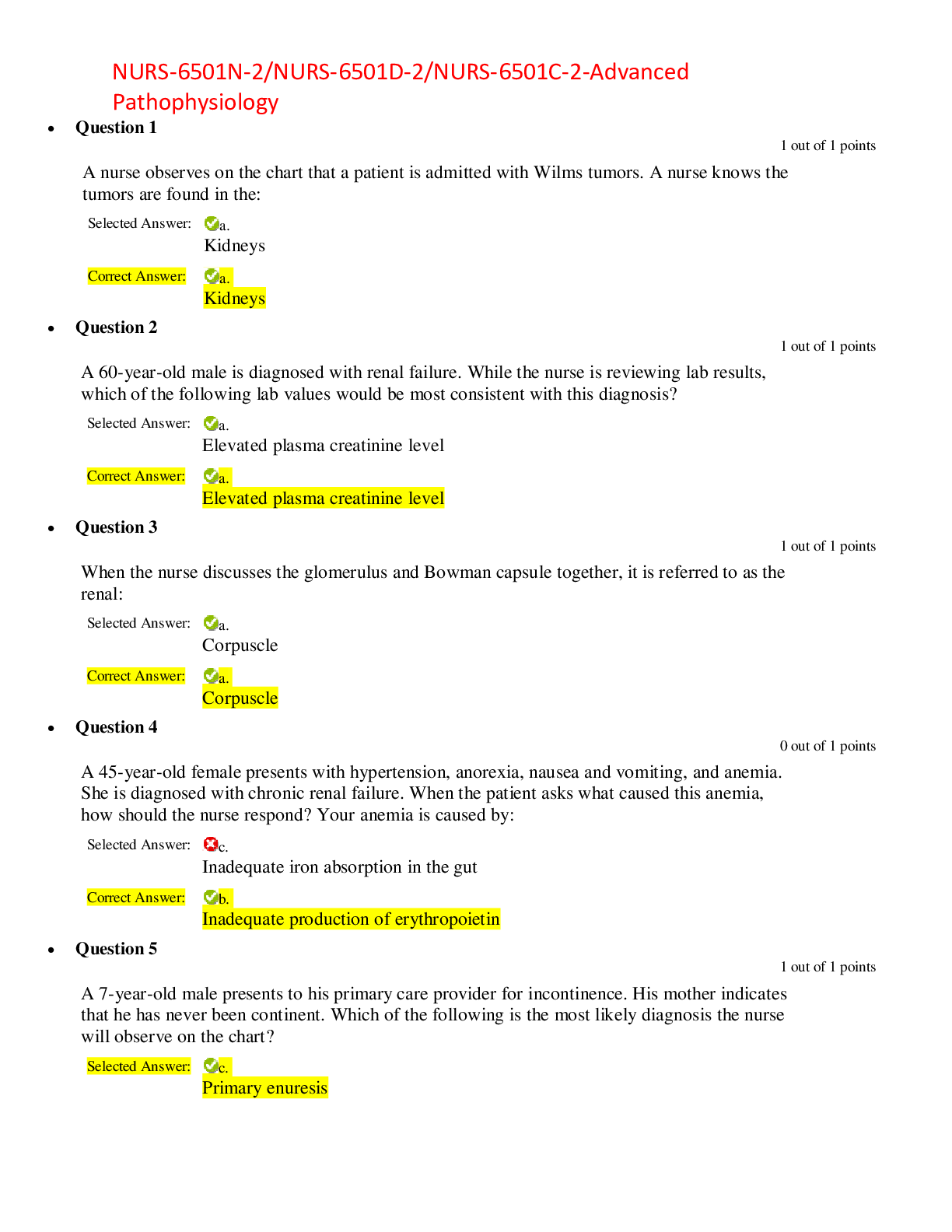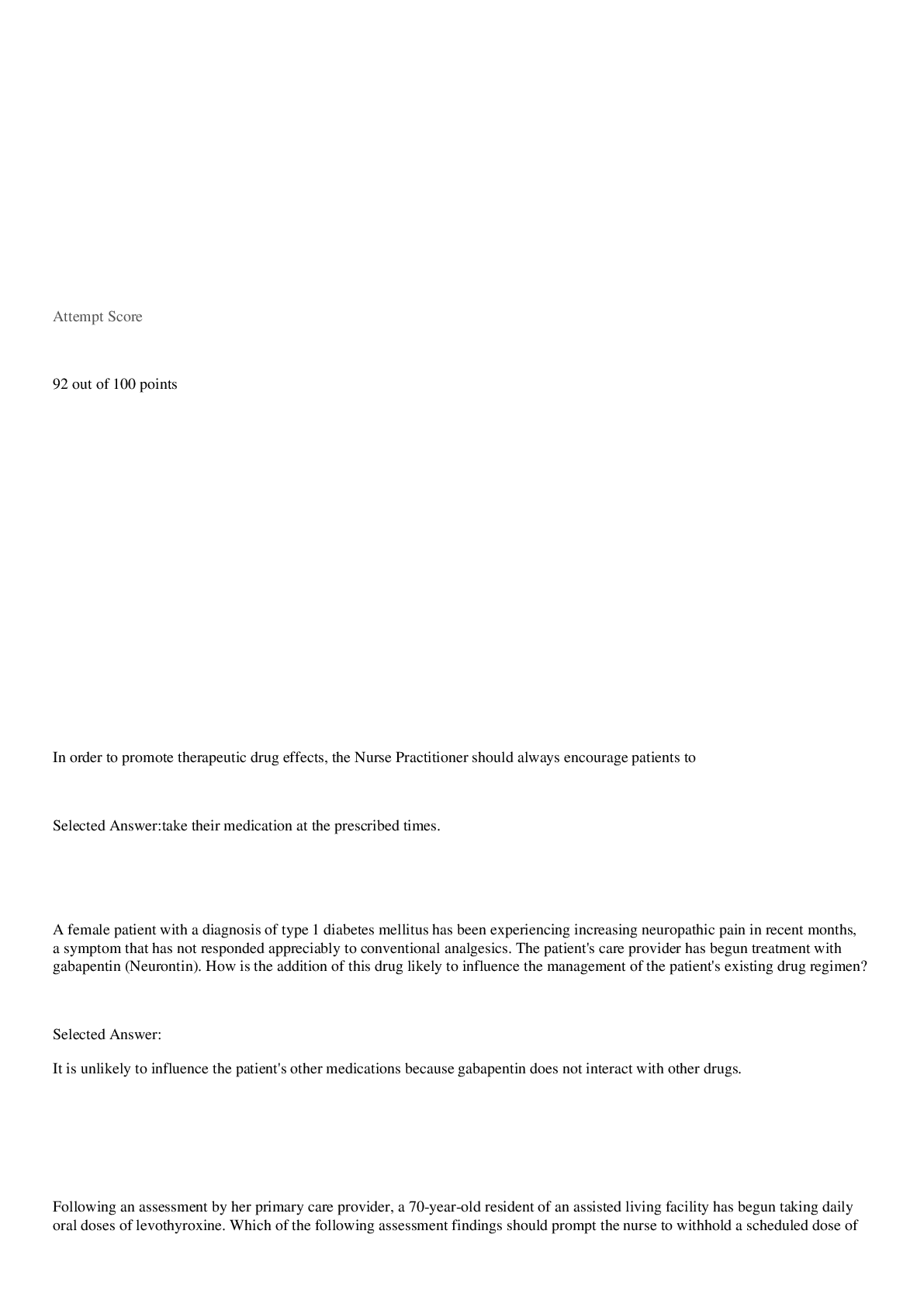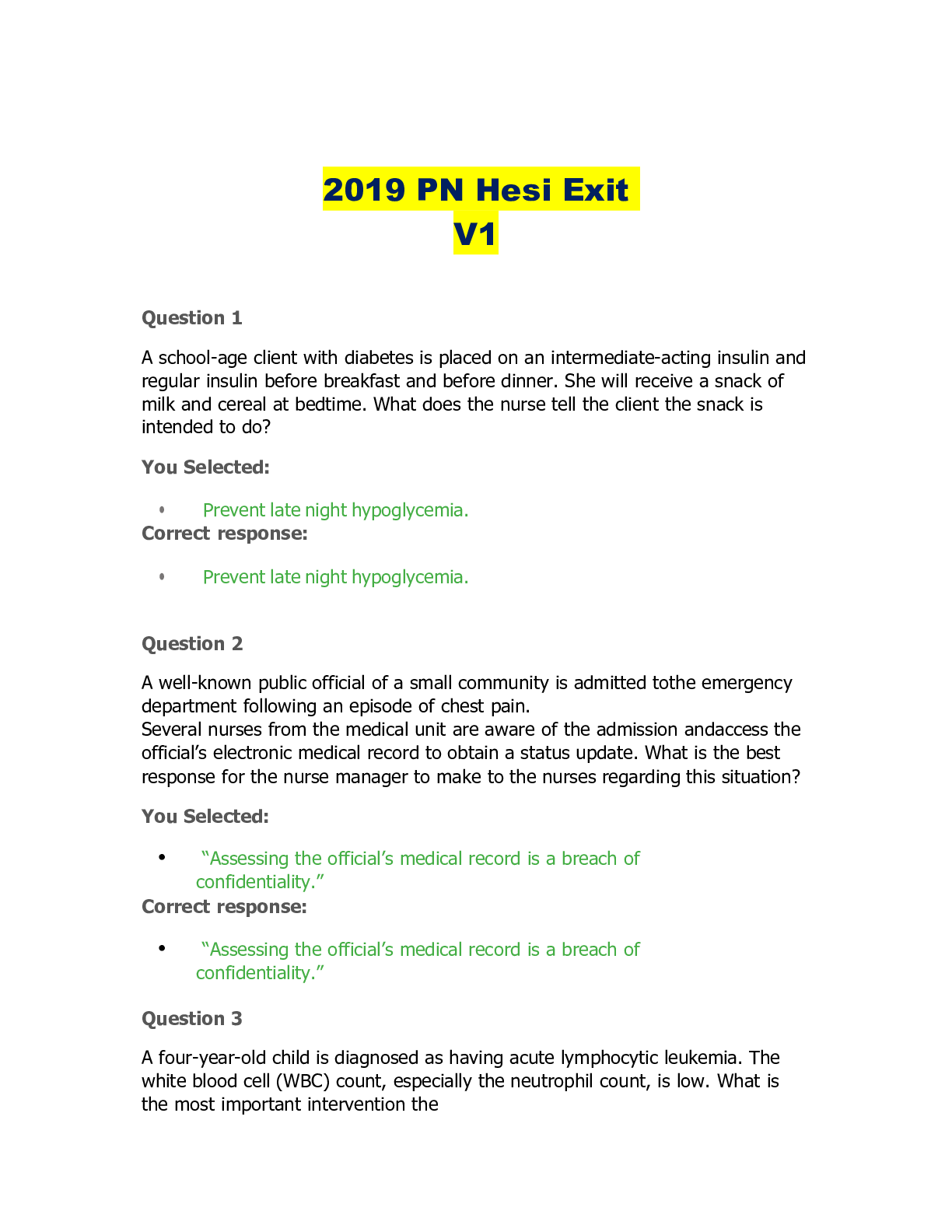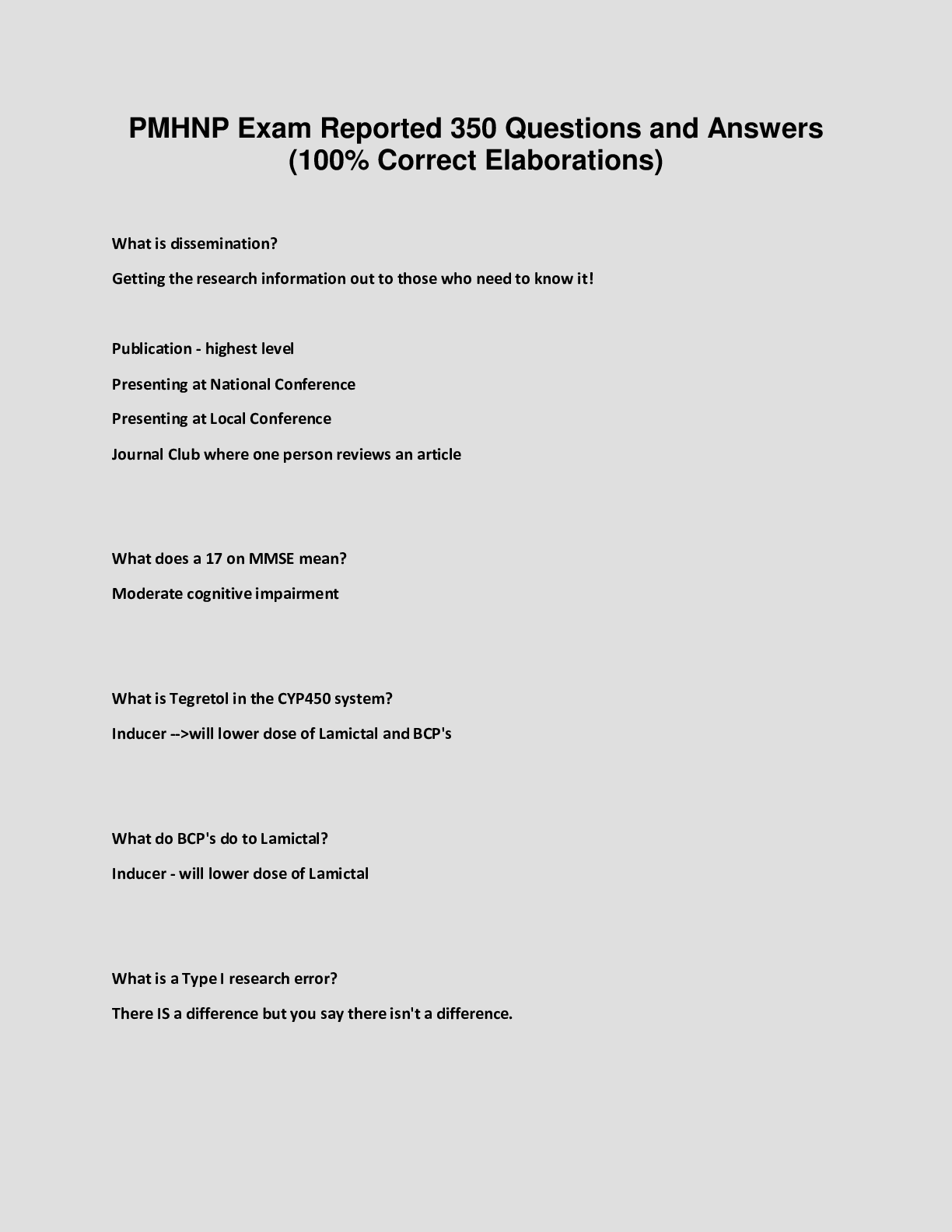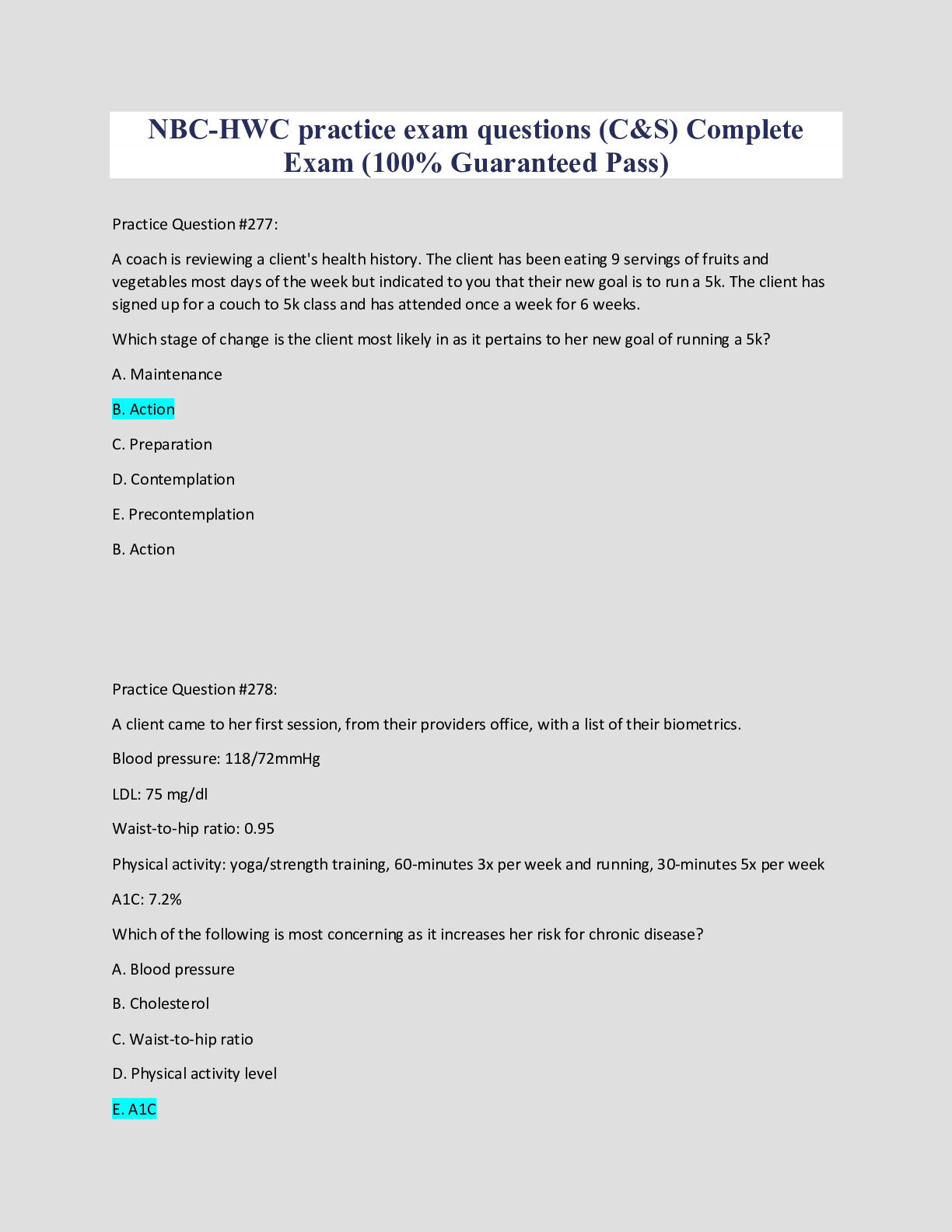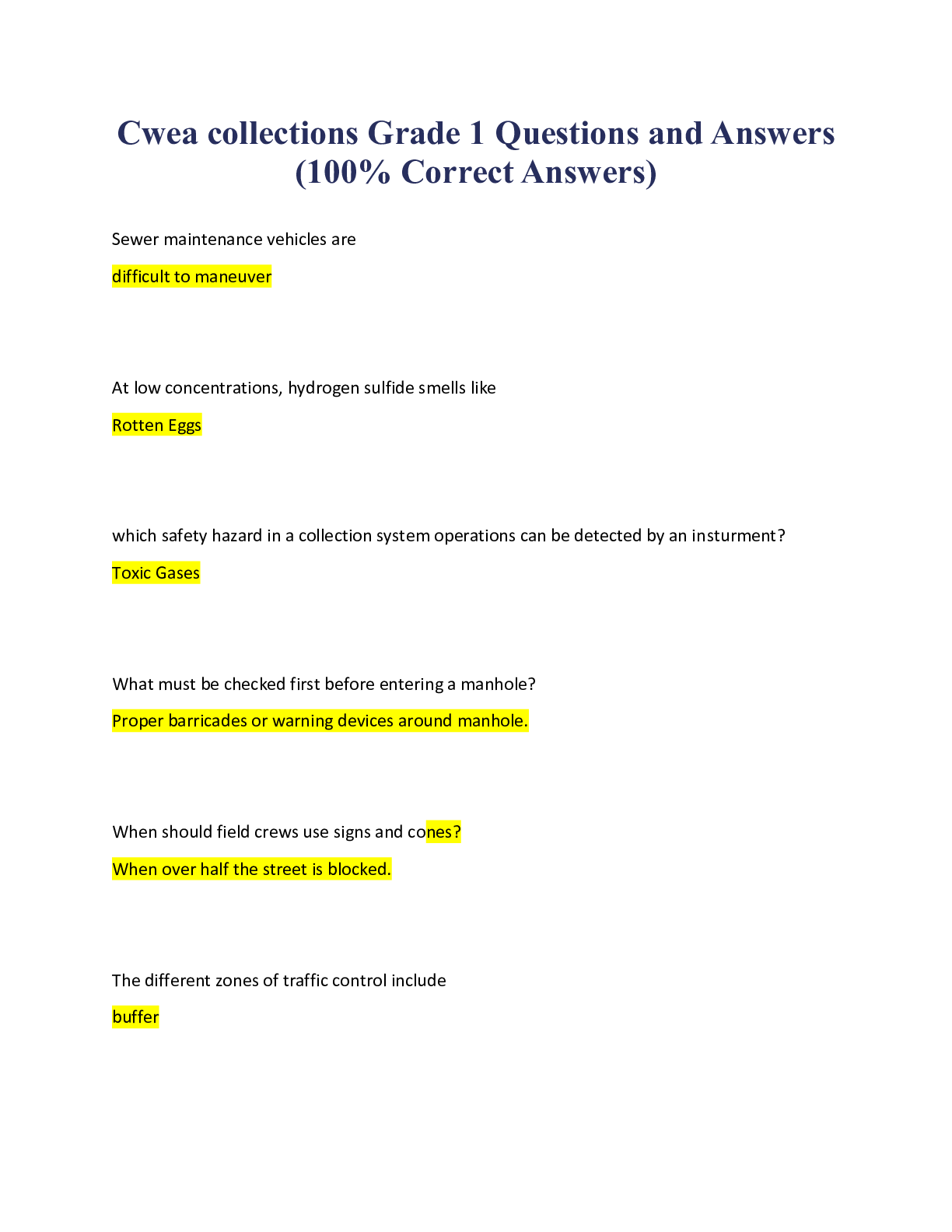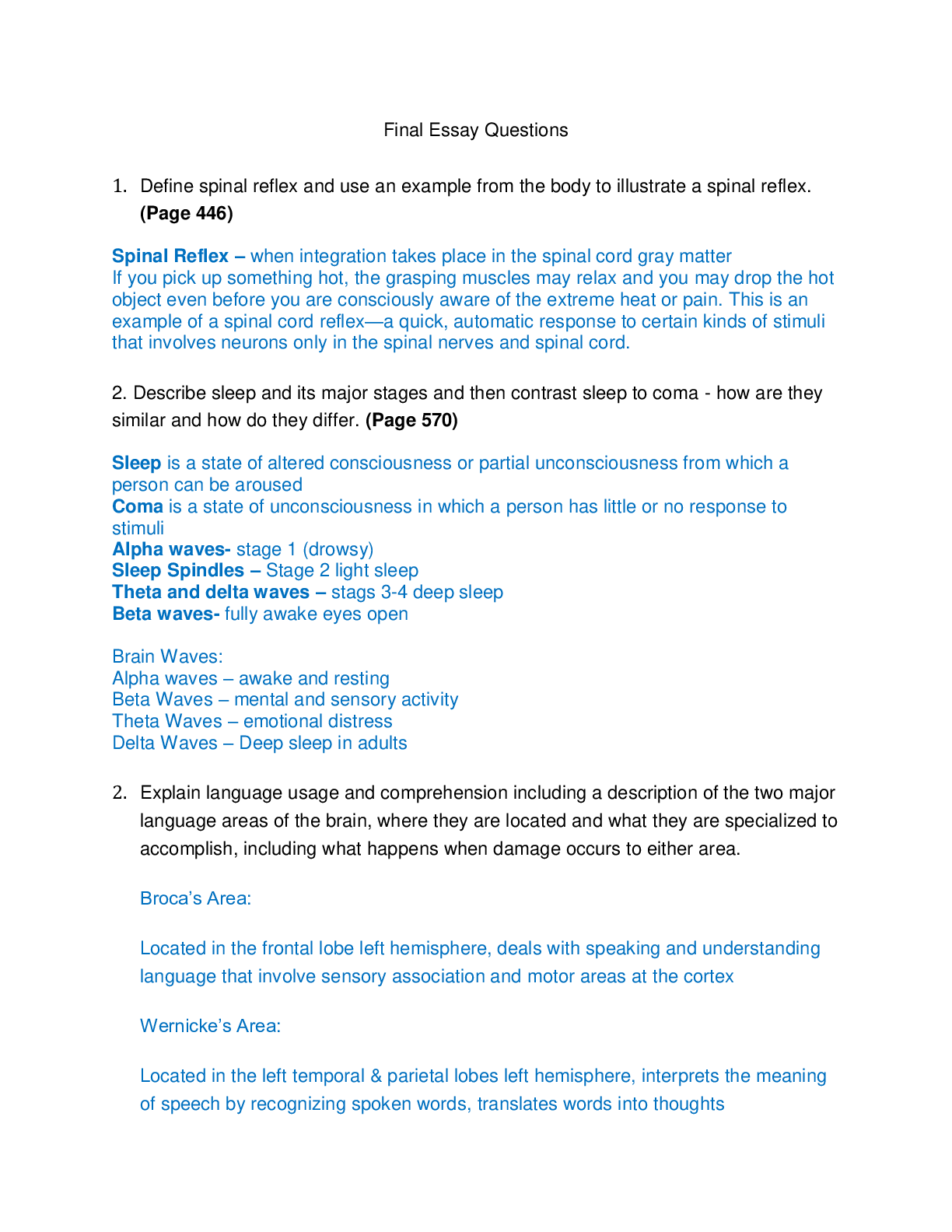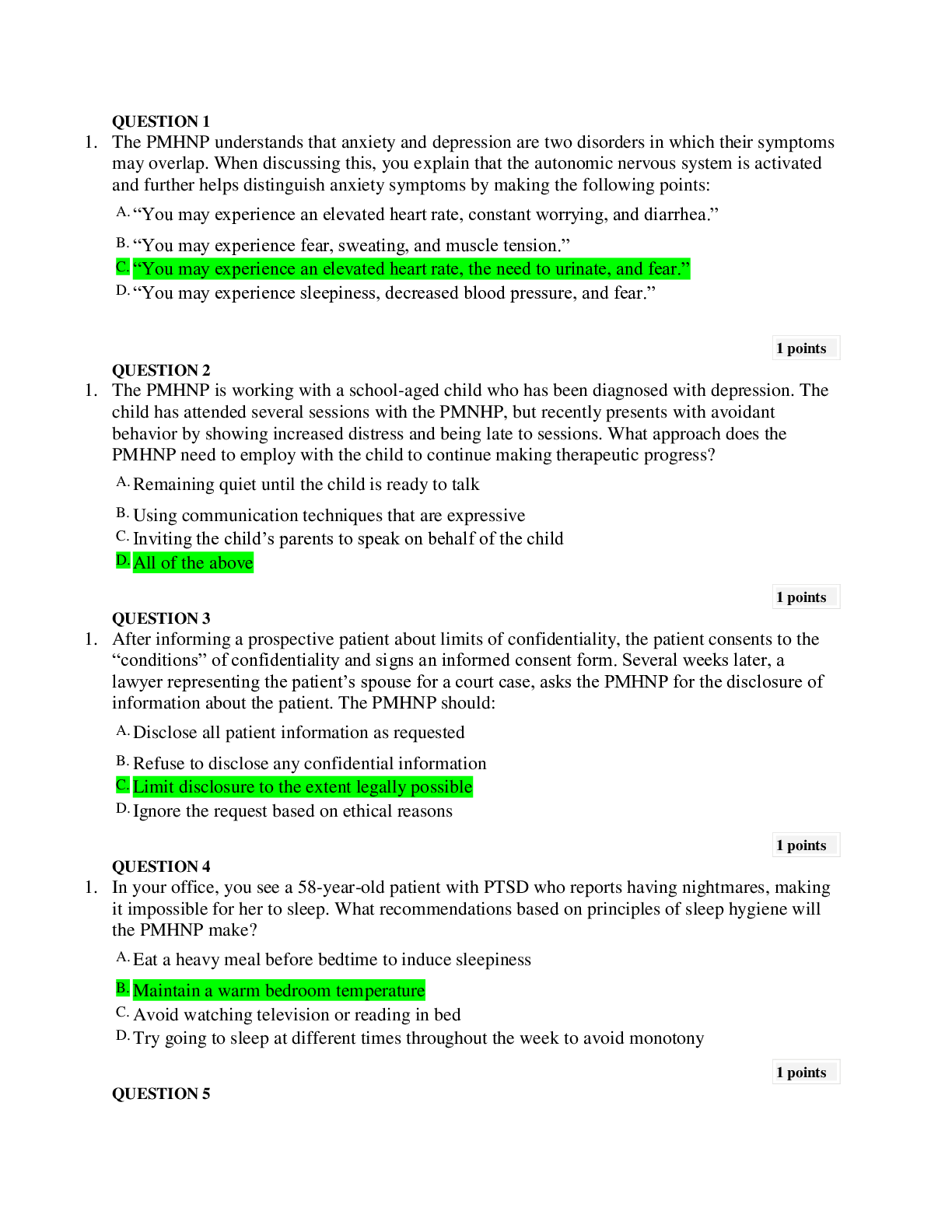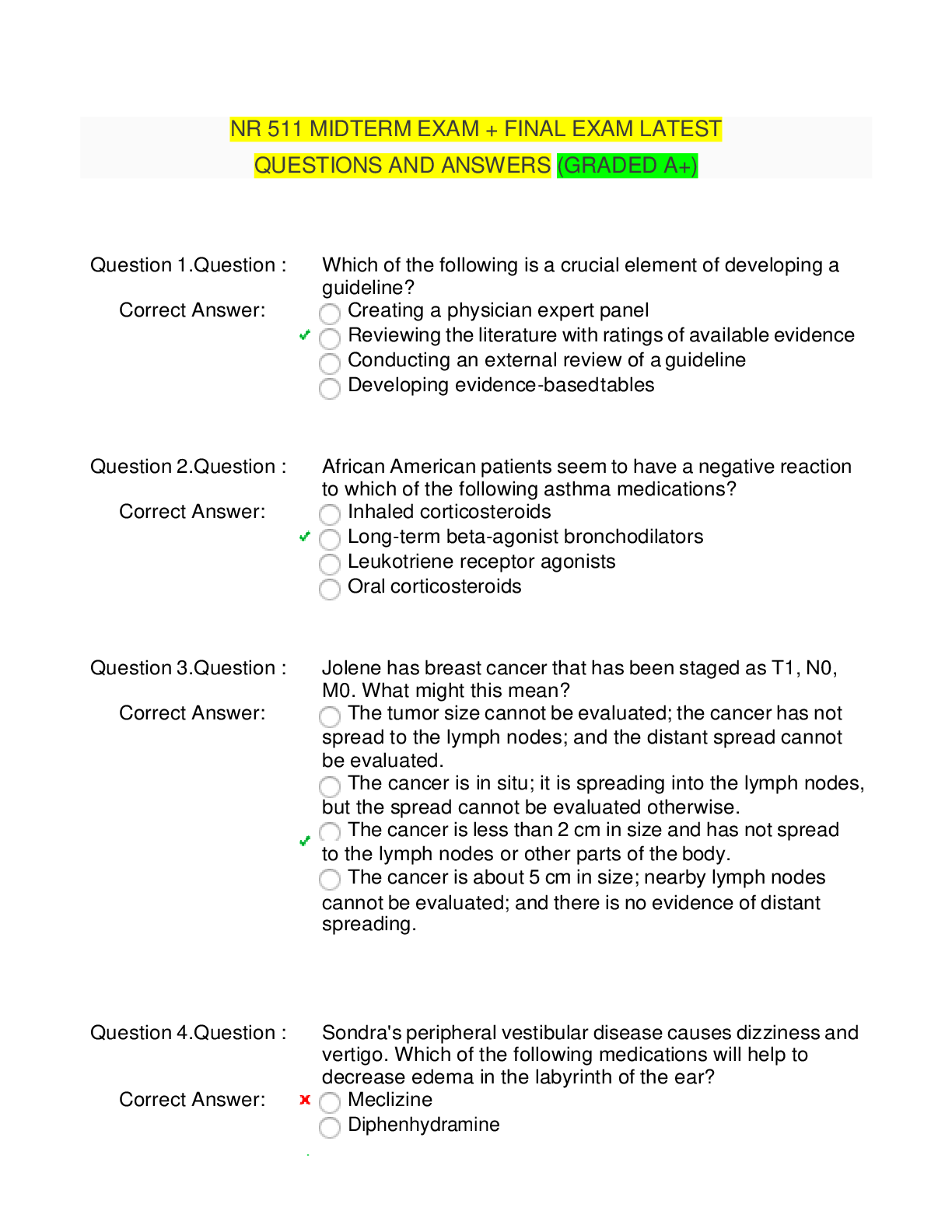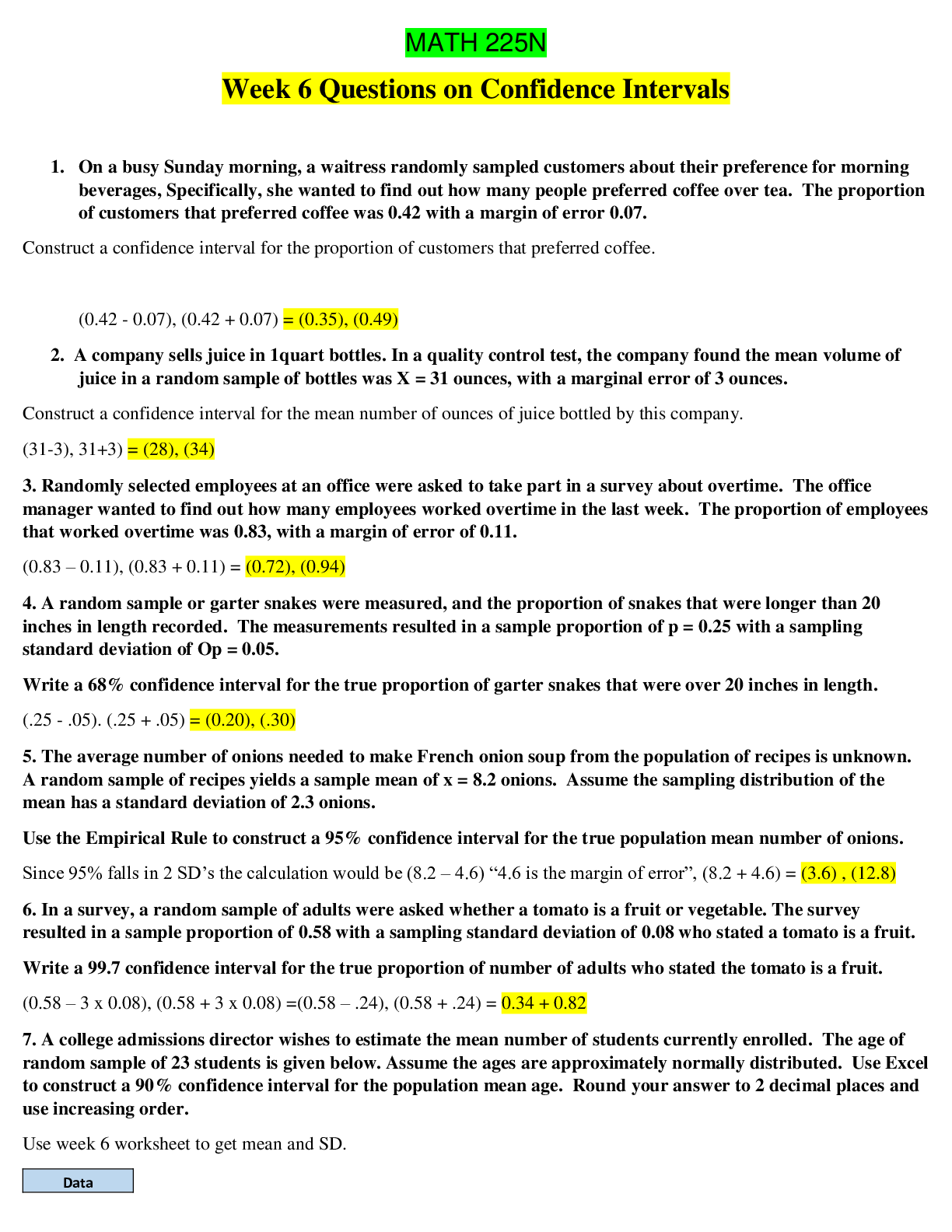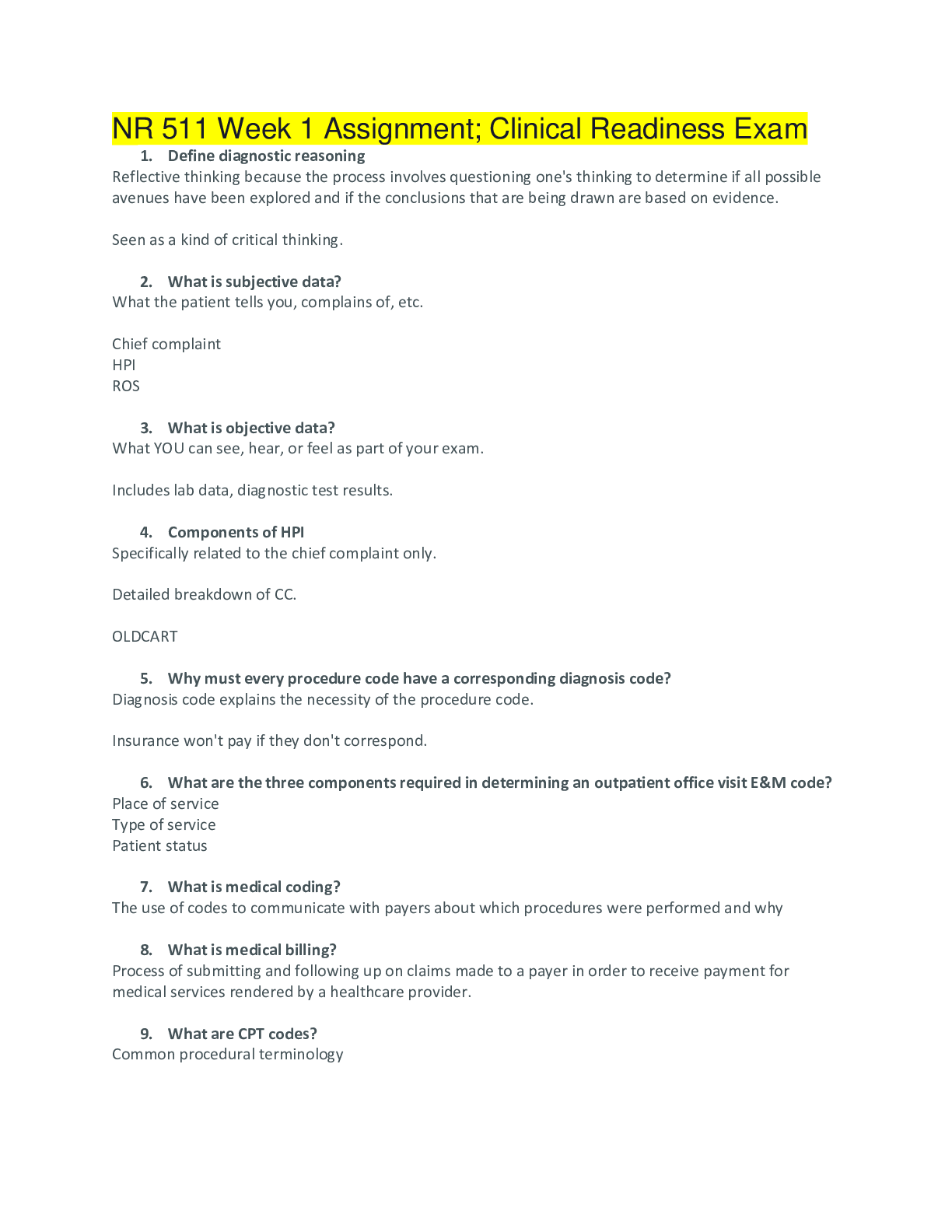Georgette's Module 5 Exam (100 out of 100) Questions and Answers (GRADED A)
Document Content and Description Below
Any court of law that evaluates the standards of care provided by the psychiatric-mental health nurse practitioner: A. compares actions to the standard of care provided by a psychiatrist. B. con... siders what a reasonably prudent PMHNP would do in the same or similar circumstance. C. evaluates patient satisfaction data. D. reviews the nurse practitioner's charts for similar patients B. considers what a reasonably prudent PMHNP would do in the same or similar circumstance. The parent or legal guardian of a seven-year-old child must approve any medication orders because a child of this age fails to meet which of two of the five elements of informed consent? A. Autonomy and veracity B. Decision capacity and comprehension. C. Confidentiality and beneficence D. Disclosure of information and voluntariness B. Decision capacity and comprehension While providing a history, a patient request that a PMHNP disclose the information gathered with no one but the patient's spouse. By respecting this request, the nurse practitioner demonstrates which component of a therapeutic relationship? A. Nonmaleficience B. Beneficence C. Confidentiatlity D. Empathy C. Confidentiatlity A new male patient has a 10-year history of substance abuse, depression, and anxiety. He is requesting Xanax. Which principle should the PMHNP employ moving forward? A. Beneficence B. Justice C. Non-Maleficence D. Veracity C. Non-Maleficence A PMHNP prescribes Fluoxetine to a patient recently diagnosed with major depressive disorder. The PMHNP understands that this aspect of care delivery is an example of which of the following ethical principles? A. Veracity B. Autonomy C. Justice D. Beneficence D. Beneficence whcih is promoting well being / doing good What is Veracity in the Nursing Telling the truth What is non-maleficence? duty to do no harm A PMHNP decides to exclude a patient from a new experimental pharmacological therapy because the PMHNP believes the patient cannot afford the medication. Which ethical principle is violated by the PMHNP? A. Beneficence B. Nonmaleficence C. Justice D. Veracity C. Justice A new female patient has recently been diagnosed with bipolar disorder. The PMHNP and the patient agree to start Lithium. The PMHNP reviews the benefits and risks of taking lithium with the patient, and the PMHNP sends the order to the pharmacy. Which of the following patient rights was violated? A. Beneficence B. Informed Consent C. Non-Maleficence D. Confidentiality D. Confidentiality because we did not get permission from patient to verify which pharmacy to send to. For the exam, a pharmacy is a third party. For the exam we want written consent . When conducting research what are the factors we take into consideration --hint PICOT Patient/population of Patients/ and Problem Intervention Comparison Outcome Time If the question is cultural i.e. it specifies the ethnicity or religion of a patient, what type of answer should we choose? A cultural answer A PMHNP notices that few substance abuse treatment programs apply evidence-based practice. The PMHNP wants to initiate such a treatment program to: A. implement the use of valid instruments B. improve outcomes through analysis and synthesis of evidence C. maximize interventions and increase skill utilization D. optimize revenue generating potential B. improve outcomes through analysis and synthesis of evidence A PMHNP recognizes recognizes that a number of his or her colleagues are prescribing a certain medication for an off-label use. The PMHNP's initial action to: A. conduct a literature search to determine whether data support the off-label use. B. contact the pharmaceutical manufacturer to request related research findings. C. prescribe the medication for off-label use. D. report the colleagures to the state Board of Nursing A. conduct a literature search to determine whether data support the off-label use. If you see "initial action" in a question what do you want to do in answering? Prioritize which means 1st: Assessment 2nd: Maslow's hierarchy of needs 3rd: Nursing process. Also choose answers that have you actively involved. A PMHNP and a staff nurse are discussing the amount of time required to perform safety rounds on a psychiatric inpatient unit. An initial evidence-based approach for investigating this topic is to A. conduct a time study B. identify community standards C. perform a literature search D. survey the nursing staff C. perform a literature search All four answers are assessments The evidence hierarchy ranks sources of knowledge according to the strength of information they provide. Which of the following would you find in Levle 1 of an evidence hierarchy? A. Meta-Analysis B. Cohort studies C. Opinions of expert committees D. Case control A. Meta-Analysis Mr. Smithers, an involuntary hospitalized patient experiencing psychotic symptoms, refuses to take any of his ordered medication because he believes "Jesus Christ told him I am the prophet and must fast for a year." Your actions should be based on your knowledge of which of the following? A. Psycchiatric patients cannot refuse treatment B. Psychiatric patients do not always know what is good for them C. Psychiatric patients can refuse treatment D. Psychiatric patients cannot be trusted to make good healthcare decisions and, therefore, the nurse's best clinical judgment should guide actions. C. Psychiatric patients can refuse treatment Of note: Although involuntary admission, he has not been declared incompetent. A, B, and D are all saying the same thing. C is saying something different The PMHNP is asked to consult with a local inpatient psychiatric facility to provide nursing staff development. After meeting with the administrator to identify the nature of the problem requiring the consultation, the PMHNP's next step is to: A. create an interdisciplinary teaching team B. develop outcome measures C. market the educational plan D. utilize a survey to assess the educational needs of the staff D. utilize a survey to assess the educational needs of the staff This is kind of an "initial step" question and the answer actually has "assess" in it. Before implementing evidence-based practice changes, an adult psychiatric and mental health nurse practitioner's initial action is to: A. brainstorm with stakeholders and draft a detailed problem list B. compare data with internal and external benchmarks and coordinate ongoing education C. facilitate a collaborative multidisciplinary group to synthesize evidence and compare key themes. D. identify potential barriers and facilitators that reflect patients' values and expectations. D. identify potential barriers and facilitators that reflect patients' values and expectations. The PMHNP has a law Bill in the senate legislature passed so that funds will be released to be used for housing the severe and persistently mentally ill. The PMHNP contacts eight persons and asks them to telephone the State Senate who heads the HHS committee, she asks them to tell the State Senator to vote to approve the bill. The NP is acting as an ? A. Care provider B. Advocate C. Policy maker D. Stigma Reduction Agent B. Advocate If a patient from a specific culture is refusing to accept any disagnosis of mental health disorders because of shame, what could be done to address this barrier? A. Educate the family B. Political Advocacy C. Public health concerns D. Community education programs D. Community education programs Of note: stigma is presenting as shame. Education eliminates stigma so we want to educate. In this scenario A and D are both correct but we choose D because it targets more people. Mary is a Psychiatric-Mental Health Nurse Practitioner (PMHNP) who is working in a hospitalist role. Mary has encountered over five incidences in which attending psychiatrists and medical residents have been demeaning to nursing staff and not answering calls in the middle of the night or telling the nursing staff to write orders and the MD would sign off in the a.m. Mary is concerned about errors and wants to improve quality, reduce errors to promote safety. What concept is Mary employing? a. Bullying b. Abuse c. Civil Disobedience d. Just Culture D. Just Culture The Psychiatric-mental health nurse practitioner is concerned about access-to-care issues in the local community and wants to help develop health care policy to help patients access care more effectively. The nurse practitioner knows one of the most effective avenues for developing and advocating for policy is: A. asking the clinic manager to explore options for access B. organizing a political protest C. working with the local chapter of the nurse's professional association D. writing letters to the editor of the local newspaper C. working with the local chapter of the nurse's professional association A PMHNP is leading an interdisciplinary group that is developing treatment plans for patients with schizophrenia. During the second meeting, the nurse manager becomes resistant to the idea and negative about its implementation. This is an important project, and the support of the manager will be needed. The PMHNP's best response to the situation is to: A. meet individually with the nurse manager to discuss the perceived resistance. B. report the situation to the nursing director and ask for administrative intervention. C. revisit the initial goals of the group at the next meeting and ask for comments. D. Schedule another meeting of the group and move through the agenda since the majority of the group is very supportive A. meet individually with the nurse manager to discuss the perceived resistance. A psychiatric-mental health nurse practitioner is responsible for initiating quality mprovement at a community mental health clinic. The effective strategy for evaluating the clinic's services is to A. a chart review analysis B. a root cause analysis C. a plan-do-study-act process D. failure effect mode analysis C. a plan-do-study-act process The psychiatric nurse practitioner participates in a hospital-based quality improvement project. The nurse practitioner reviews four charts per month of a nurse practitioner colleague to ensure diabetes protocols are met. This process is a: A. Core competency B. Force field analysis C. Peer review D. Risk analysis C. Peer review "Debriefing strategies" is a keyword for giving feedback after an event or incident A 69-year old Cameroonian female, who recently moved to the United States 4 weeks ago comes to your clinic for an evaluation. Her first language is French and she does not speak English. She did not finish high school and has problems with reading and writing. As the PMHNP, what is your priority disparity to address with this patient? A. Race B. Age C. Reading level D. Health Literacy D. Health Literacy Of note: Health Literacy includes reading level. Both are key problems but health literacy includes reading level but reading level does not necessarily include health literacy The PMHNP evaluates a new adult patient via telemedicine. The patient has questions about a new medication that he or she recently started. The nurse practitioner decides to provide psychoeducation and to: A. E-mail drug information and resources B. Encourage the patient to seek information on the internet C. Have a phone conference with a family member D. Refer patient to a local primary care provider A. E-mail drug information and resources In counseling a 23-year-old married, Hispanic mother who brought her 4-year-old son to clinic for "mal de ojo" with symptoms of fitful sleep, diarrhea, vomiting, and fever, the PMHNP: A. Identifies what steps the mother has already tried in caring for the child's symptoms. B. Explains that the symptoms are most likely caused by viral infection C. Educates about importance of maintaining fluid and electrolyte imbalance. D. Respects the mother's understanding of the child's illness D. Respects the mother's understanding of the child's illness Of note: respect is very important in cultural questions. A PMHNP working in a child and adolescent psychiatric unit meets regularly with the staff nurses of an adolescent inpatient psychiatric unit to improve the nurses' therapeutic interactions with the patients. Each nurse keeps a journal describing clinical interactions with an adolescent and examines the factors that hinder the nurse's ability to interact therapeutically with the patient. The PMHNP reviews the entries and provides written feedback. This teaching strategy is known as D. Reflective practice [Show More]
Last updated: 7 months ago
Preview 1 out of 13 pages
Instant download
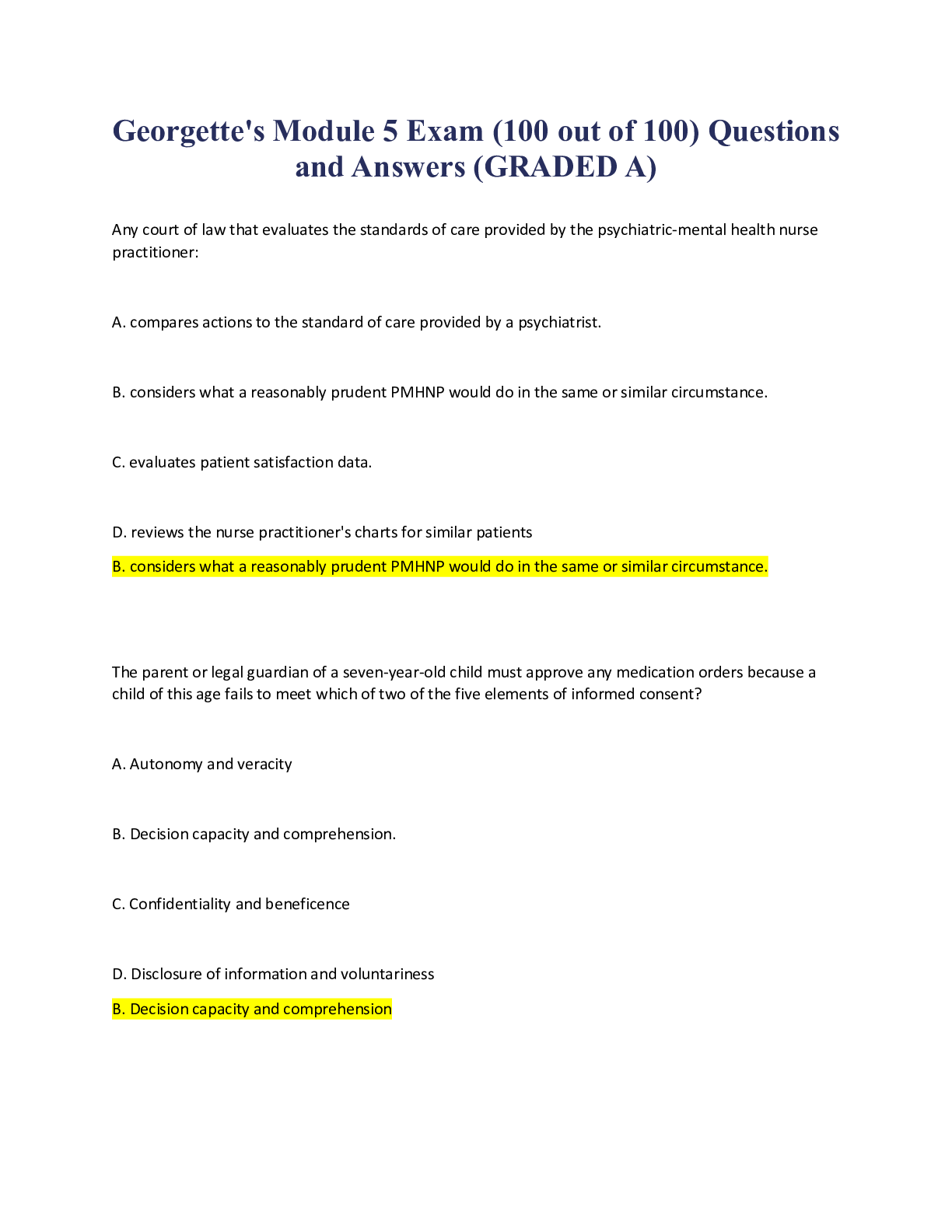
Buy this document to get the full access instantly
Instant Download Access after purchase
Add to cartInstant download
Also available in bundle (1)

GEORGETTE'S PMHNP CERTIFICATION REVIEW EXAMS AND STUDY GUIDED (LATEST UPDATES) 100% CORRECT ANSWERS
GEORGETTE'S PMHNP CERTIFICATION REVIEW EXAMS AND STUDY GUIDED (LATEST UPDATES) 100% CORRECT ANSWERS
By A+ Solutions 7 months ago
$24.5
13
Reviews( 0 )
Document information
Connected school, study & course
About the document
Uploaded On
Oct 16, 2023
Number of pages
13
Written in
Additional information
This document has been written for:
Uploaded
Oct 16, 2023
Downloads
0
Views
122

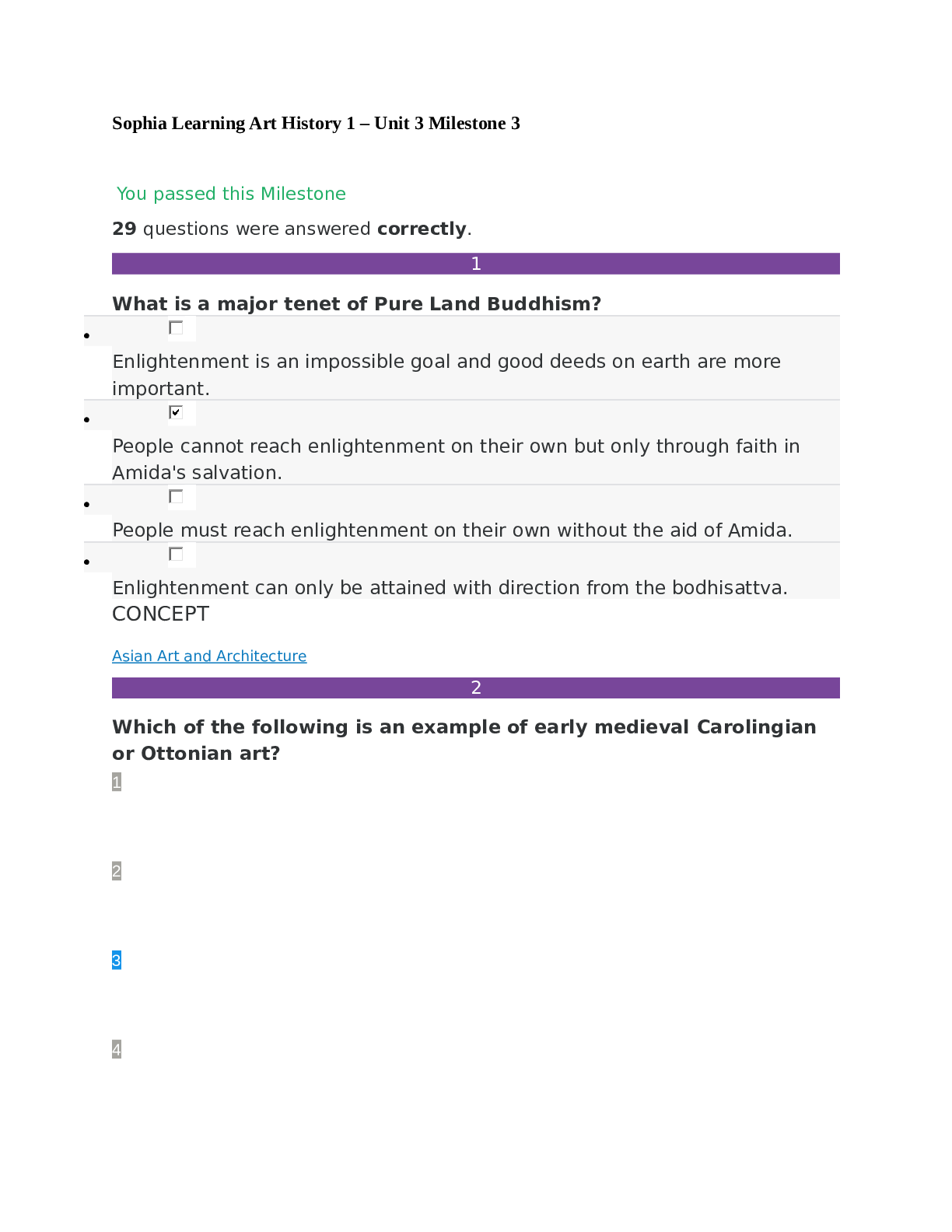
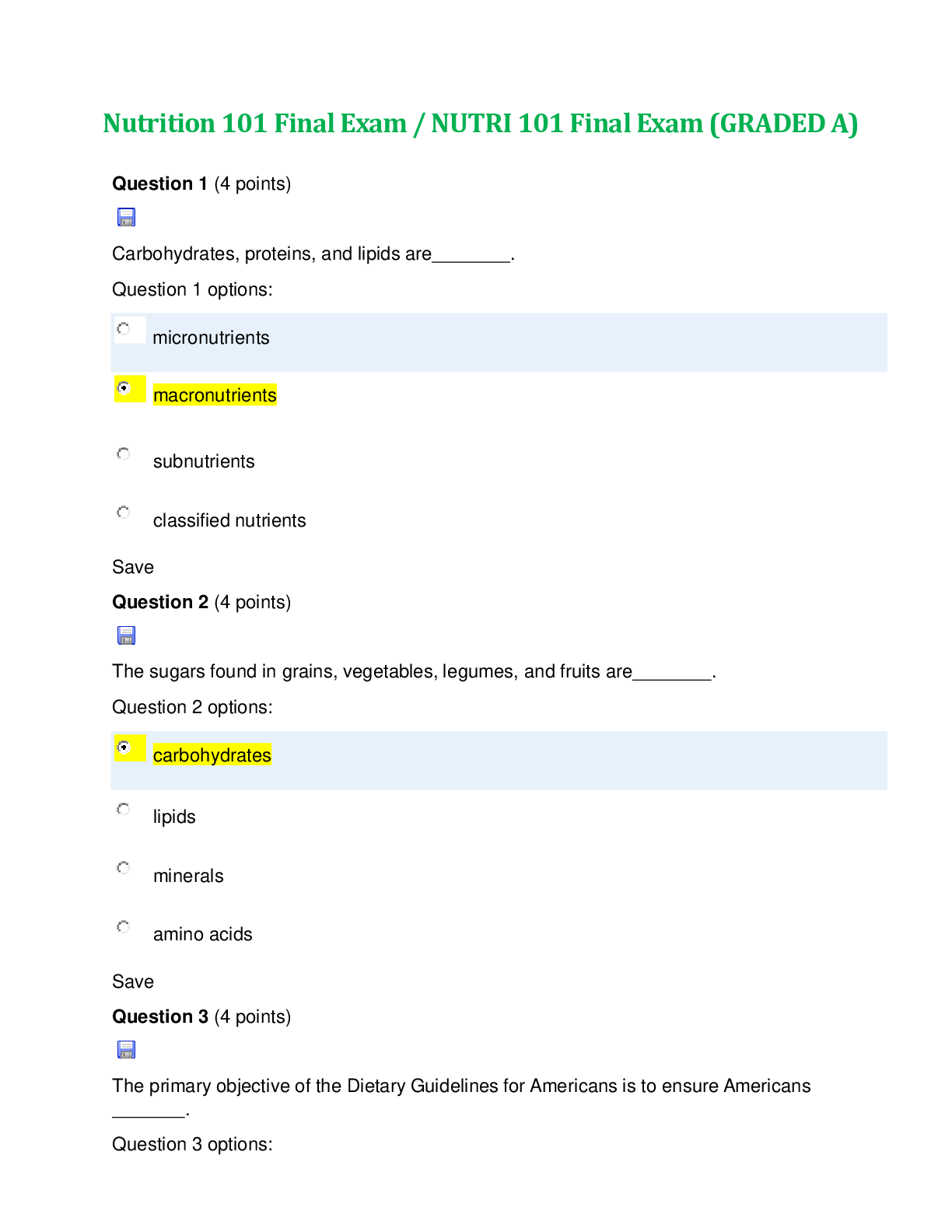
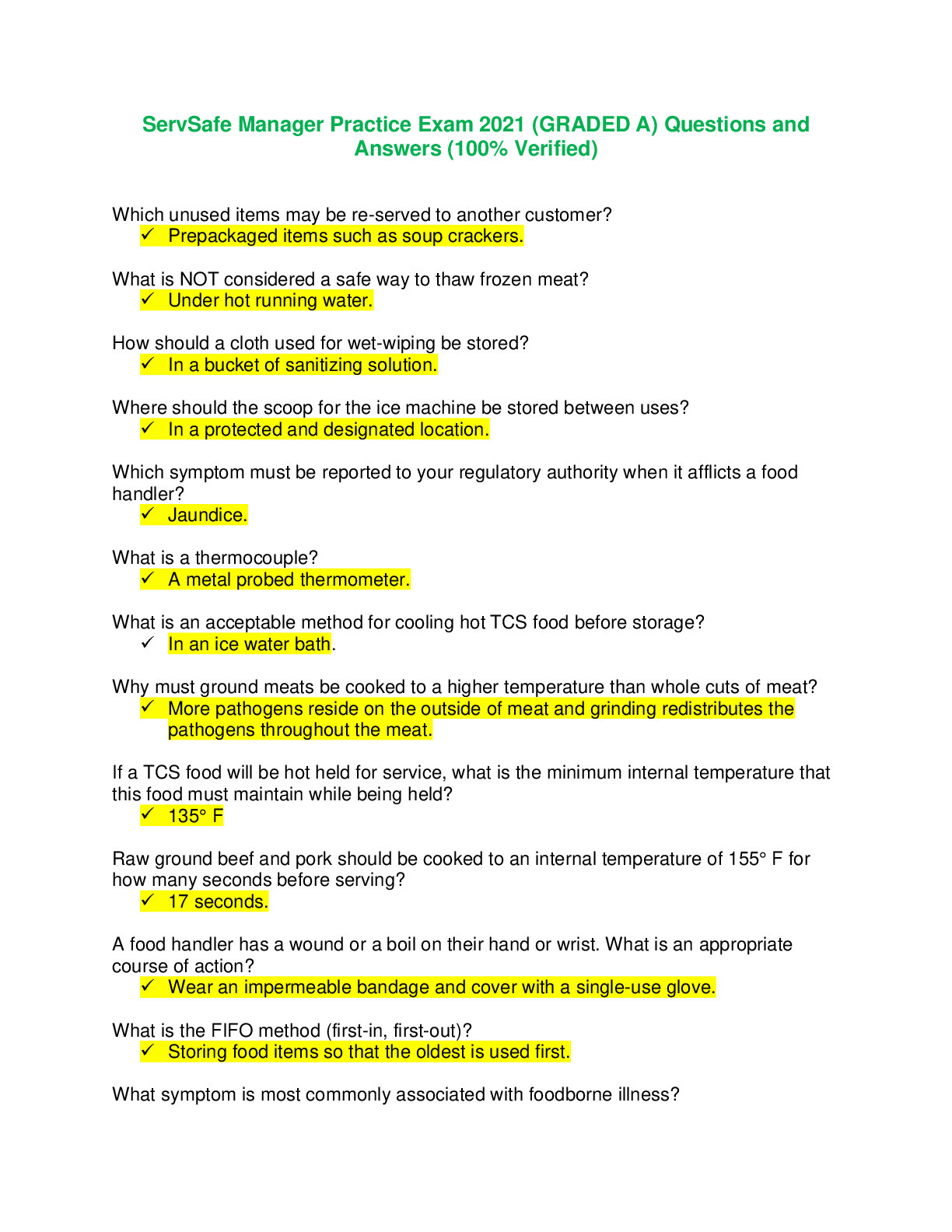
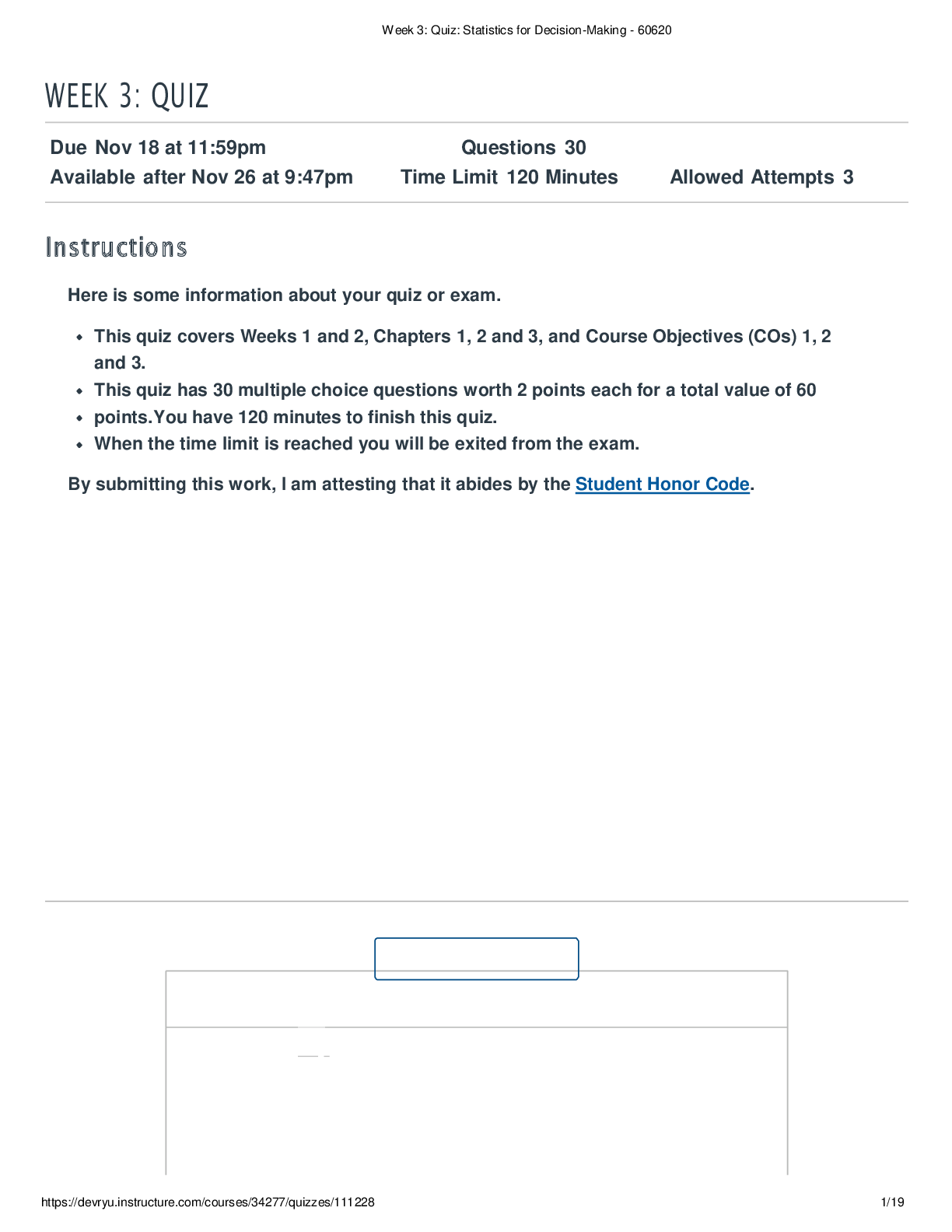
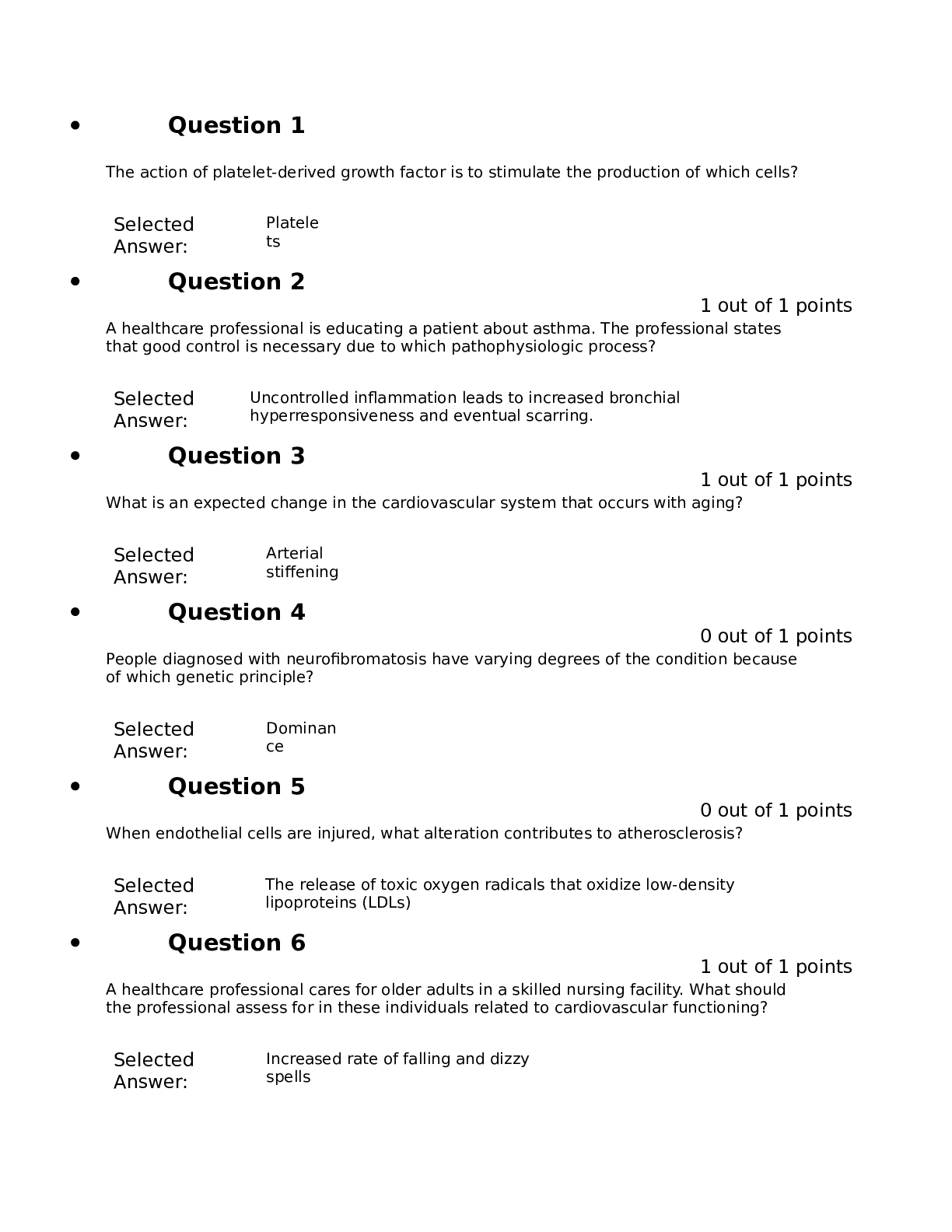
.png)
